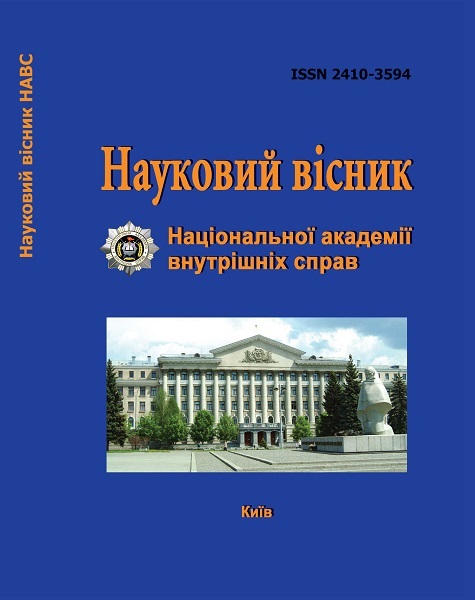Participation of Citizens in a Devastating Way Impact on Crime: International Experience
Abstract
The problems of the destructive influence of citizens and the social environment on criminality are highlighted. An attempt has been made to explore the experience of Western European countries in involving volunteer assistants, community councils, operational groups, pedagogical associations, scientific institutions that are actively conducting criminological research, and participating in the prevention of crimes. Formulation of the problem. Participation of all citizens in the impact on crime is a fundamental condition, as without a population-backed population not yet one state has been able to construct an effective system for combating crime and to find sufficient resources for its effective functioning. Some aspects of the participation of citizens and the social environment in the devastating impact on crime were studied by such scholars as J. Gilinsky, V. Golin, I. Danshin, O. Dzhuzha, A. Zakalyuk, A. Zelinsky, O. Ignatov, S. Inhacov, R. Clark, M. Kolodyazhny, V. Kvashis, V. Luneev, A. Shostko, E. Shur, V. Fox. But, unfortunately, the issues under investigation, in particular, legislation on the regulation of citizen participation in the prevention of crime need to be refined and improved. That is why the subject of our research is relevant. The purpose of this article is to analyze the stateʼs involvement of citizens and the social environment in influencing crime and reliance on the people in the implementation of the strategy for preventing crime; improvement of the regulatory framework in the field of citizensʼ participation in crime prevention, public safety and public order protection, road safety and other social environment in cooperation with law enforcement officials, in particular the National Police.
Downloads
Abstract views: 107 PDF Downloads: 106
- Authors reserve the right to authorship of their own work and transfer to the magazine the right of the first publication of this work under the terms of the Creative Commons Attribution License, which allows other persons to freely distribute published work with mandatory reference to authors of the original work and the first publication of an article in this magazine.
- Authors have the right to enter into separate additional agreements on non-exclusive dissemination of the work in the form in which it was published in the journal (for example, to post an article in the institution's repository or to publish as part of a monograph), provided that the link to the first publication of the work in this journal is maintained.
- The journal's policy allows and encourages the posting of articles by authors on the Internet (for example, in electronic storehouses of institutions or on personal websites), both before the submission of this manuscript to the editorial office and during its editorial processing, as this contributes to the creation of a productive scientific discussion and positively affects the efficiency and dynamics of citing the published work.




